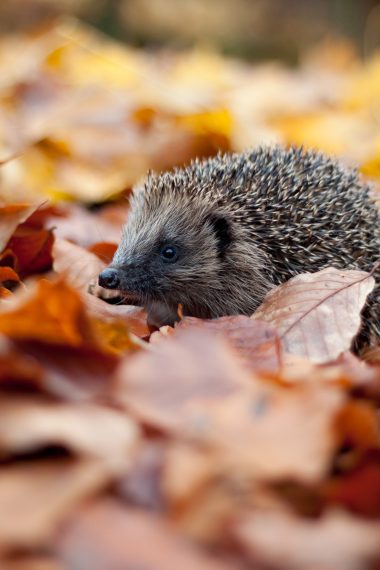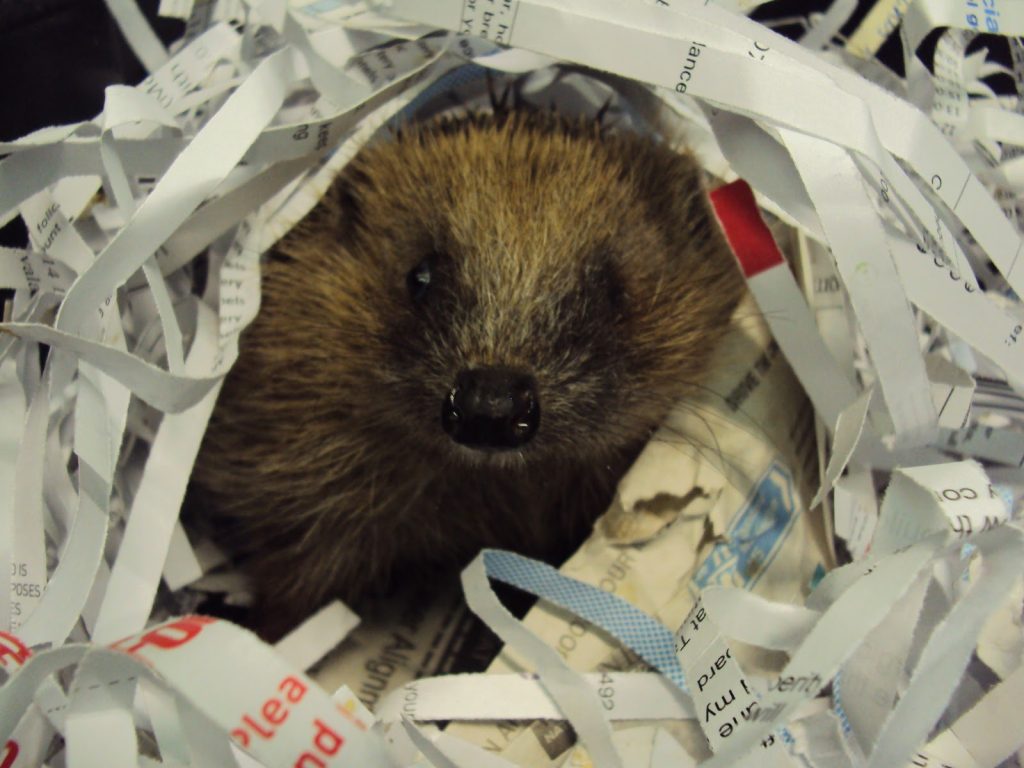Providing a small dish of dry kitten biscuits in your garden could be the difference between life and death at this time of year…
Hedgehogs are one of Britain’s most iconic and cherished animals, but they are in desperate need of our help this winter.
Reports are flooding in from concerned citizens spotting hedgehogs out in daylight—a clear sign that these little creatures are in serious trouble.
Most of these sightings are not of healthy adults but starving babies, struggling to survive.

The Myth About Slugs
Many people assume that hedgehogs love slugs, which seem plentiful at this time of year. However, this misconception could be deadly. Slugs carry a parasite known as lungworm, which is lethal to hedgehogs. Their natural diet consists of beetles and caterpillars, but as winter sets in, these food sources become scarce. Healthy, well-fed hedgehogs hibernate, but those that haven’t reached this state are left wandering, desperately searching for something to eat.
Without help, these hedgehogs will succumb to starvation or parasite invasions. But a simple act of kindness could make all the difference.
How You Can Help
Providing a small dish of dry kitten biscuits in your garden could be the difference between life and death for these struggling animals. Hedgehogs are nocturnal, so if you see one out in daylight, it’s an emergency.
 Picture by Tom Marshall. s
Picture by Tom Marshall. sSpotting the Signs
A hedgehog in daylight is a sign of severe illness. While they may not appear sick at first glance, hedgehogs are prey animals and instinctively hide their weakness. By the time they are seen during the day, they are likely in shock, with their bodies cold and their brains redirecting blood to vital organs in a last-ditch effort to survive.
What to Do in an Emergency
If you see a hedgehog of any size in daylight:
Act Quickly: Bring the hedgehog indoors and place it in a high-sided box or container (sick hedgehogs can still climb).
Provide Warmth: Fill a hot water bottle with warm—not boiling—water, wrap it in a fleece or blanket, and place it in the box. Add more fleece or scrunched-up kitchen roll on top to let the hedgehog hide and feel secure.
Offer Food and Water: Provide a small dish of kitten biscuits and water but avoid giving milk, as it can be harmful.
Call for Help: Contact your local hedgehog rescue or wildlife hospital immediately for professional advice.
Minimise Stress
While hedgehogs are gentle and defenceless, they are still wild animals. Handling should be kept to a minimum to avoid causing additional stress, which can be fatal. Keep the box in a quiet, warm room and let the hedgehog rest while waiting for expert assistance.
Be the Difference
Hedgehogs are facing a tough battle this winter, but with a little effort, we can help them survive. By leaving out food, staying vigilant, and taking action when needed, you can play a crucial role in protecting these beloved creatures.
This winter, let’s give hedgehogs the fighting chance they deserve. A small dish of kitten biscuits in your garden could save a life. Let’s work together to ensure these wonderful animals remain a part of Britain’s wildlife for generations to come.
MORE INFORMATION ABOUT FEEDING:
Safe Foods for Hedgehogs
Cat Food (Wet or Dry):
High-quality meat-based cat food is excellent for hedgehogs.
Opt for chicken, turkey, or fish flavors without added salt, sugar, or artificial ingredients.
Avoid cat foods with a lot of gravy or jelly, as these can be too rich.
Dog Food (Wet or Dry):
Similar to cat food, dog food should be meat-based and free from artificial additives.
Choose small kibble or crush larger kibble into manageable pieces for easier consumption.
Specially Formulated Hedgehog Food:
Some pet stores stock specific hedgehog food blends, which can be a good choice.
Insects:
Hedgehogs love mealworms, waxworms, and crickets (available at pet stores).
Offer these as occasional treats rather than the main diet to avoid imbalanced nutrition.
Cooked Meat:
Small amounts of plain, cooked chicken, turkey, or lean beef are suitable.
Eggs:
Scrambled or boiled eggs (no salt or butter) can be an occasional treat.
Fruits and Vegetables:
Safe fruits: bananas, apples (peeled), and berries (in moderation).
Safe vegetables: cooked carrots, green beans, and peas.
Dry Kitten Biscuits:
These are ideal for hedgehogs as they’re small, nutritious, and easy to eat.
Foods to Avoid
AVOID Milk and Dairy:
Hedgehogs are lactose intolerant, and milk can cause digestive problems.
AVOID Bread:
Bread has no nutritional value for hedgehogs and can cause digestive blockages.
AVOID Nuts and Seeds:
Hard to digest and can pose choking hazards.
Raw Meat or Eggs:
Can contain harmful bacteria like salmonella.
AVOID Processed or Seasoned Foods:
Anything with salt, sugar, or artificial ingredients is unsuitable.
Citrus Fruits and Grapes:
These can upset a hedgehog’s stomach and are potentially toxic.
AVOID Fish-Based Dog Food:
Avoid fish-flavoured dog food as it can cause digestive upsets.
Tips for Feeding Hedgehogs
Water: Always provide fresh water in a shallow dish; never give milk.
Portion Control: Hedgehogs are small animals and can become obese, so feed small portions.
Feeding Time: Hedgehogs are nocturnal, so offer food in the evening.
By sticking to these guidelines, you can ensure that the hedgehog in your care gets a safe, balanced diet to thrive.






